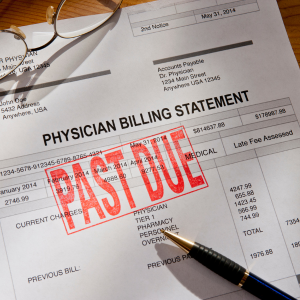
Understanding Asset Protection: Safeguarding Your Home
When you have medical bills in Michigan that could put your home at risk, you need to know how to protect your assets. For people who live in this state, the homestead exemption protects your main home from creditors.
There are, however, limits to this security that depend on how much equity you have in your home and the laws in your state. There are legal rights for homeowners who owe money on medical bills that can help them keep their homes. Medical debts can lead to aggressive collection efforts, such as property liens.
Talking to an experienced lawyer who knows Michigan’s real estate rules can help you figure out the best way to protect your assets. You might also find relief without putting your property at risk by looking into choices like structured payment plans or getting help from the government.
Understanding these protections empowers homeowners with high medical expenses to make informed decisions and secure their most valuable asset—their home.
The Role of Health Insurance in Protecting Your Finances
Health insurance plays a pivotal role in shielding your finances from the heavy burden of medical bills, especially when faced with long-term care or urgent treatments in Michigan. With coverage for a broad range of services, health insurance can dramatically lower out-of-pocket costs and reduce the risk of financial crisis that could lead to the loss of your home.
In a state where healthcare costs are high and emergencies can strike without warning, comprehensive insurance is especially critical. It ensures families can access medical care without draining savings or selling assets.
Most plans offer coverage for hospital stays, prescriptions, and preventative care, all of which help manage long-term costs. Legal protections under both state and federal law also help make sure essential services are covered, reducing the chance that homeowners will face extreme financial instability.
Planning Ahead: Building an Emergency Fund for Unexpected Bills
Preparing for unexpected medical expenses is vital, particularly when considering how they can impact valuable assets like your home in Michigan. One proactive step is creating a strong emergency fund.
This financial cushion allows you to handle sudden costs without resorting to drastic actions like selling your home. By consistently setting aside money—aiming for three to six months of living expenses—you gain the flexibility to weather financial storms with confidence.
Besides helping to manage medical bills, it also brings peace of mind during emergencies. Given Michigan’s often steep healthcare costs, such a fund becomes even more important.
It keeps you in charge of your money and keeps you from having to make hard decisions about land ownership. By making this a top goal when you save, you can protect your home and your long-term financial health.
Strategies for Managing Hospital and Healthcare Expenses

Taking a proactive approach to hospital and healthcare costs in Michigan can make a real difference in safeguarding your home from the fallout of medical debt. Start by carefully reviewing your medical bills—errors and overcharges happen more often than you might think.
Talking to companies directly to set up a payment plan can help ease the stress by breaking up big bills into monthly amounts that are easier to handle. If your income is low, government programs like Medicaid may be able to help you a lot.
For homeowners, considering medical expense insurance could add another layer of protection by covering significant hospital costs. Also, a financial advisor with expertise in medical debt can help you budget wisely and make informed decisions without putting your home at risk.
In more serious situations, some Michigan homeowners consider selling their home to pay off the debt, especially when medical bills become overwhelming and threaten their long-term financial stability. Lastly, it’s essential to be aware of Michigan’s legal protections. These rules vary and can make a significant difference in the actual safety of your property.
Tips for Negotiating with Healthcare Providers and Insurers
When medical bills start to pile up in Michigan, it can be important to protect your home and finances by learning how to negotiate well. First, look over your bills carefully to see if there are any mistakes. These happen a lot of the time.
Next, contact your provider’s billing office to discuss reducing charges or creating a payment plan that suits your financial situation. Be transparent about your income and ask about available financial assistance or sliding scale programs.
Additionally, talk to your insurance company to find out what they should cover and to file an appeal if your claims are rejected. When you’re negotiating, knowing your rights under Michigan’s consumer protection rules can help.
By staying engaged and informed, you can reduce the financial impact of medical debt and prevent your home from being caught in the crossfire.
Government Assistance Programs for Medical Expenses
In Michigan, government assistance programs serve as a lifeline for those overwhelmed by medical bills that threaten their financial stability—and even their homes. Medicaid offers crucial coverage to low-income individuals and families, helping cover essential healthcare services and ease financial burdens.
Individuals over 65 and those with disabilities may also be eligible for Medicare, which lowers out-of-pocket costs through a variety of coverage choices. As a short-term solution to immediate cash problems, the State Emergency Relief (SER) program can help with medical emergencies.
In addition, the Affordable Care Act (ACA) offers subsidized insurance plans through the marketplace, making healthcare more accessible and less financially devastating. These programs are vital in protecting residents from spiraling medical debt and reducing the likelihood of selling property to cover healthcare costs.
Community Resources for Individuals Facing High Medical Costs
For Michigan residents struggling with medical debt and worried about losing their homes, community resources can offer support, guidance, and protection. Nonprofits often provide financial counseling to help individuals create manageable payment strategies and negotiate medical bills.
Legal aid groups can help people learn about their rights as consumers, such as their rights when it comes to debt collection and eviction, so that people can act in an informed way. Some community health centers even have sliding scale fees, which makes paying for medical bills in the future easier.
If you’re struggling with overwhelming medical bills, local government programs may offer emergency assistance or housing stability support to help you stay in your home. You don’t have to face these challenges alone. Blue Moon Acquisitions buys houses for cash in any situation—call us today to see how we can help.
Legal Implications of Unpaid Medical Bills in Michigan

If you don’t pay your Michigan medical bills on time, you could face serious legal consequences, especially if you own your house. If people don’t pay their bills, healthcare providers or debt collectors may go to court to get what they’re owed.
Most of the time, this leads to a ruling, which can mean that your wages are taken away or your property is seized. In Michigan, that lien might be attached to your house, which would make it harder to sell or refinance in the future.
Although the Homestead Exemption Act offers some protection, shielding a portion of your home’s equity, it doesn’t provide full immunity. For homeowners with significant medical debt, it’s vital to understand how legal judgments could affect their property rights and to consider working with an attorney who specializes in Michigan debt laws to explore negotiation or bankruptcy as possible solutions.
How State Laws Affect Debt Collection Practices in Michigan
Michigan law makes it clear how hospital debts can be collected, which protects homeowners in some ways. Creditors have to go through a legal process that includes getting a court ruling before they can put a lien on a residence.
The state’s homestead exemption law also limits the amount of home equity that can be targeted, ensuring that creditors can’t take everything in the event of collection efforts. These laws provide a crucial safety net for those navigating medical debt.
The federal Fair Debt Collection Practices Act, which stops debt collectors from harassing people and using dishonest methods, is also mirrored in Michigan. Knowing about these rights can help homeowners stand their ground when dealing with medical debt and keep their property safe.
Exploring Homestead Exemption Laws in Michigan
In Michigan, homestead exemption laws offer valuable protection to homeowners worried about losing their property due to medical debt. These laws shield a portion of your home’s equity from creditors during bankruptcy or other debt collection actions.
Currently, the exemption protects up to $40,000 in equity for most individuals and $60,000 for seniors or those with certain disabilities. This means a creditor typically cannot force the sale of your home to collect unsecured debts like medical bills—as long as the equity is within those limits.
However, it’s important to recognize the limits of this protection. The homestead exemption doesn’t apply to secured debts such as mortgages or tax liens, and it won’t prevent liens if a judgment is obtained. Knowing where these exemptions apply—and where they don’t—can help you take meaningful steps to protect your home.
Differences Between Secured and Unsecured Debts
In Michigan, distinguishing between secured and unsecured debts is key when evaluating the risk medical bills pose to your home. Secured debts—like a mortgage—are tied to specific assets and allow creditors to seize that asset if the debt isn’t repaid.
Unsecured debts, such as medical bills or credit card balances, are not backed by property. While unpaid unsecured debts don’t lead to immediate foreclosure, they can still pose a threat if creditors obtain a judgment and place a lien on your home.
This lien must be satisfied before you can sell or refinance the property. Though it won’t result in an automatic home sale, it creates a legal complication that could limit your financial freedom. Knowing the distinction between these two debt types is essential for Michigan homeowners navigating financial hardship.
Understanding the Statute of Limitations on Medical Debts
In Michigan, the statute of limitations provides a timeline on how long creditors have to take legal action over unpaid medical debt—typically six years from the date of last payment or written acknowledgment.
If that time expires without legal action, creditors may lose the right to sue for collection. However, if you make a payment or admit to the debt in writing, the clock resets, extending the window for legal action.
This law offers some protection, but it doesn’t automatically remove the debt from your credit report or stop collection attempts like calls or letters. Understanding how the statute of limitations works in Michigan—and how your actions can affect it—is crucial when managing old medical debts and protecting your property.
Steps to Take If You Receive a Medical Bill Collection Notice

If you receive a medical bill collection notice in Michigan, acting promptly is crucial to avoid serious financial consequences. Start by carefully reviewing the bill for errors or discrepancies, and verify whether your insurance has been properly applied.
Next, contact the healthcare provider and your insurer to clarify charges. If you still dispute the debt, send a written letter to the debt collector requesting validation of the debt—you have this right under the Fair Debt Collection Practices Act.
If you’re facing medical debt, consider exploring options like negotiating a payment plan or working with a nonprofit credit counselor. It’s also wise to review Michigan’s homestead exemption laws to understand how they may protect your home from a forced sale. Consulting with a qualified attorney can help you respond effectively and safeguard your property.
If you’re looking to sell quickly due to financial pressure, we buy houses in Canton and other parts of Michigan, providing fast, hassle-free solutions for homeowners in difficult situations.
How to Prevent Foreclosure Due to Medical Debt
Preventing foreclosure due to medical debt in Michigan involves proactive planning and clear communication. First, work directly with your healthcare providers to negotiate payment plans that spread out your expenses in manageable chunks.
Explore nonprofit and government financial assistance programs, which may help reduce or delay payments. Make sure you understand Michigan’s homestead exemption, which protects part of your home’s equity and may limit creditor actions.
Maintaining open communication with your mortgage lender is essential—many are willing to explore loan modifications or forbearance if you’re facing financial hardship due to medical debt. Speaking with a legal or financial advisor can help you understand your options and avoid foreclosure. If you’re overwhelmed by medical bills and need a way out, you may also want to sell your house fast in Michigan to relieve the burden and regain financial stability.
What Is the Law on Unpaid Medical Bills in Michigan?
In Michigan, unpaid medical bills are considered unsecured debt, which means they don’t automatically result in a lien on your property like a mortgage or tax debt. However, if those bills go unpaid, healthcare providers or debt collectors can sue you in court to recover the money.
If they win the lawsuit, they may obtain a judgment that allows them to place a lien on your home. While this lien doesn’t force an immediate sale, it complicates your ability to refinance or sell the property without first paying off the debt.
The homestead exemption in Michigan protects some of your home’s value while you are in court, especially when you are filing for bankruptcy. Still, it’s important to know that these protections aren’t complete and that you should talk to a lawyer to learn more about your rights and avoid long-term problems.
Can a Hospital Take Your House for Unpaid Medical Bills?
In Michigan, hospitals can’t usually take your house directly because you haven’t paid your medical bills, but they can use legal methods that put your home at risk. If you don’t pay your bill, the service provider can sue you and put a judgment lien on your property if they win.
This lien doesn’t force you to vacate, but it must be paid off before you can sell or refinance. While your primary residence is protected to some extent under the Michigan Homestead Exemption, that protection only covers a specific amount of equity.
Sometimes, the situation can be kept from getting worse by working out a payment plan with the hospital or talking to a financial advisor. If you know how these things work, you can avoid unpleasant shocks and take steps to keep your home safe.
Can Creditors Take Your House in Michigan?
Creditors in Michigan cannot immediately take your house for unpaid unsecured debts like medical bills. However, if a creditor sues and wins a judgment, they can place a lien on your property—making it difficult to sell or refinance without settling the debt.
The Michigan Homestead Exemption offers some protection, but it has limits. Only a portion of your home’s equity is protected, and if your equity exceeds that limit, creditors may be able to tap into it after obtaining legal authorization.
It’s also important to know that these exemptions don’t affect secured bills like school loans or mortgages. Working with a lawyer who knows both real estate law and debt law can help you figure out what risks you are taking and how you can protect your assets.
Can You Lose Your House to Medicaid?
In Michigan, you won’t lose your home just for enrolling in Medicaid—but the situation changes after death through a process called Medicaid Estate Recovery. If a Medicaid recipient over the age of 55 receives long-term care services, the state can attempt to recover costs from their estate after they die.
This includes placing a claim against the home if it’s part of the deceased’s estate. However, there are important exceptions: if there’s a surviving spouse or dependent living in the home, the estate recovery is delayed or potentially waived.
In some situations, Michigan also offers emergency exemptions that can keep the home from being taken away. Talking to a lawyer who knows about Medicaid planning and Michigan estate law is very important to avoid unintended effects.
Useful Michigan Blog Articles
- Delinquent HOA Dues in Michigan
- How To Successfully Sell Your Michigan Home With A Reverse Mortgage
- Can Medical Bills Force The Sale Of Your Home In Michigan?
- Selling Parents’ House After Death in Michigan
- Earnest Money Rules in Michigan
- Condemned House Requirements in Michigan
- How to Sell an Investment Property in Michigan
- Tax Implications of Selling Home in Michigan
- How to Avoid Closing Costs in Michigan
- How to Sell a Condemned House in Michigan
- Selling a Home to Pay Off Debt in Michigan
- Can Executor Of Will Sell Property in Michigan
- Can You Sell A House As Is Without Inspection in Michigan
- Selling A House To A Family Member in Michigan

| BANKRUPTCIES | MEDICAL BANKRUPTCY | PATIENT | LAWYER | PROBATE | LIVING TRUST |
| TRUST | REVOCABLE LIVING TRUST | COLLECTION AGENCY | REAL PROPERTY | CREDIT CARDS | CREDIT SCORE |
| CONTRACTS | UNITED STATES | THE UNITED STATES | REPOSSESS | HEIRS | INHERITANCE |
| CREDIT CARD DEBT | VEHICLE | TAXES | PRICE |
